Purple
Showing 13–24 of 42 results
-
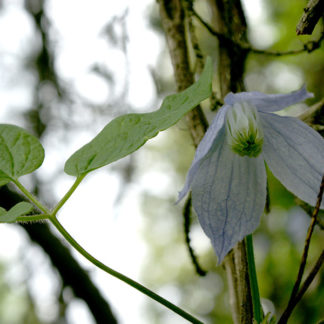
Clematis occidentalis / purple clematis
- grows as a vine with hairy stems - on ground, over logs or up trees
- leaves are trifoliate
- flowers have 4 "petals" and hang down (nodding)
- thick central core of stamens and pistils
-

Corallorhiza striata / striped coralroot
- short and purple - no green bits
- forest understory
- up to 35 flowers per stalk; often many stalks together
- flowers have 5 pointy, purple striped "petals" and one darker lower lip petal
-

Corallorhiza wisteriana / spring coralroot
- small, easily missed in the forest duff
- no leaves, no green parts
- flowers have white lips, possible spots, no eared tabs
- scape (flowering stalk) purple, or yellow, or brown
- may stay dormant for years at a time
-

Cynoglossum officinale / houndstongue
- reddish-purple flowers in upper leaf axils
- forms basal rosette with hairy leaves in first year
- stem leaves lance shaped, hairy, rough
- fruit - small nutlets with barbs or hooks
-

Dactylis glomerata / orchardgrass
- perennial bunchgrass
- branched inflorescence with lowest branch well below the others
- spikelets wedge-shaped, flattened in tight clusters
- florets green to red/purple tinged; grey-brown when seeds mature
- introduced and widespread, but not in wet areas
-
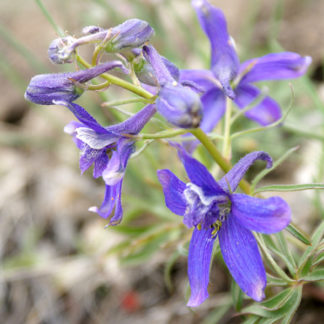
Delphinium bicolor / low larkspur
- short plant with a spike of purple flowers
- individual flowers have a pronounced spur out the back
- leaves are few, round, deeply lobed, about the size of a quarter
- widespread throughout the valley and on the hills
- appears and blooms soon after snowmelt
-
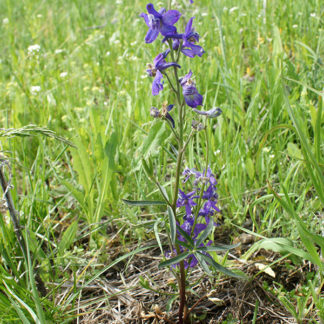
Delphinium nuttallianum / upland larkspur
- Bright blue flowers, sometimes whitish or other color petals in center
- One or several flowers per stalk
- Long spur "behind" the flower
- Leaves mostly low on the stem - divided into several or many lobes
- Open meadows, near streams, with sagebrush, any elevation
- Beginning soon after snowmelt and sometime persisting into September
-

Erigeron speciosus / aspen fleabane
- prolific purple-ish flowers with many "petals" and a yellow center
- forest openings and edges, meadows
- late blooming - a "fall aster"
-
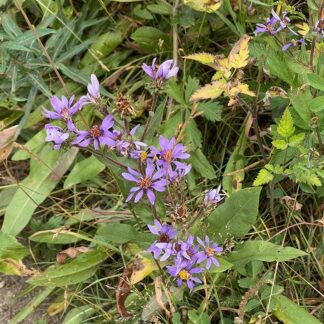
Eurybia integrifolia / thickstem aster
- purple composite with 10-20 ray florets
- entire, elongated leaves with short or no petioles
- exposed areas, mountain slopes, dry meadows, roadsides
- flowers in late summer and into September
-

Fritillaria atropurpurea / spotted fritillary
- uncommon, difficult to find, hard to see
- six "petal" nodding flower - yellow with dark purple spots
- six bright yellow anthers
- few, grass-like leaves
- usually growing in the [plant] litter at the edge of a forest
-
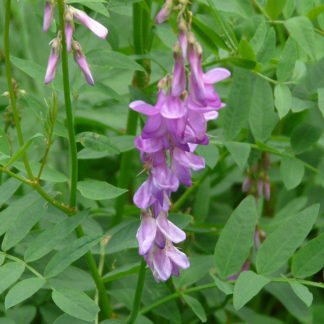
Hedysarum occidentale / western sweetvetch
- tall legume with hot pink flowers
- inflorescence several inches long; up to 80 flowers
- pinnately compound leaves with 9-21, inch-long leaflets
- higher elevations on drier, more rocky soils
-

Hesperis matronalis / dame’s rocket
- biennial, 3+ feet tall in second year
- 4-petaled flowers, especially purple or lavender
- large inflorescences with many flowers
- garden escapee
- roadsides, waste places
Showing 13–24 of 42 results